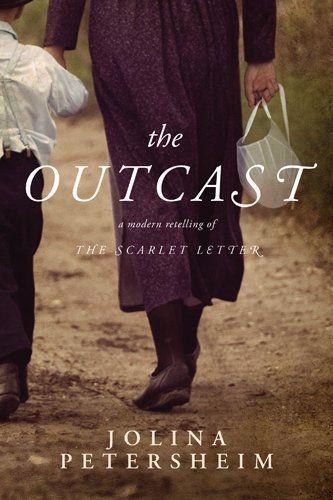 My book club’s February selection was The Outcast, Jolina Petersheim’s retelling of the Nathaniel Hawthorne classic, The Scarlet Letter.
My book club’s February selection was The Outcast, Jolina Petersheim’s retelling of the Nathaniel Hawthorne classic, The Scarlet Letter.
Jolina’s novel provided plenty of hot topics to discuss as we mused over the amazing fact that this brilliant story was a debut novel. Jolina graciously answered our many and varied questions which I’m delighted to share with you below.
The Story
Raised in an Old Order Mennonite community, Rachel Stoltzfus is a strong-willed single woman, content living apart from mainstream society until whispers stir the moment her belly swells with new life. Refusing to repent and name the partner in her sin, Rachel feels the wrath of the religious sect as she is shunned by those she loves most. She is eventually coerced into leaving by her brother-in-law, the bishop.
But secrets run deep in this cloistered community, and the bishop is hiding some of his own, threatening his conscience and his very soul. When the life of Rachel’s baby is at stake, however, choices must be made that will bring the darkness to light, forever changing the lives of those who call Copper Creek home.
The Interview
**CONTAINS SPOILERS**
NJBC: What was it about The Scarlet Letter story that made you want to retell it from a Plain perspective?
Jolina: When I started imagining characters in my head, I remembered The Scarlet Letter (which was my favorite book in high school) and the desperation Reverend Arthur Dimmesdale feels when his sin brands his chest and yet he still wants to hide it from the Puritanical world. But eventually, his inner turmoil supersedes his outward façade of calm. This inward/outward dichotomy fit so well with the premise of The Outcast that I knew I wanted to pay homage to The Scarlet Letter. Plus, I believe that the Old Order Mennonites are about as close to Puritan life as we, Englischers, can get.
However, recently I read Margot Livesey’s wonderfully literary modern retelling of Jane Eyre called, The Flight of Gemma Hardy. I had the privilege of hearing Livesey speak at the Southern Festival of Books in Nashville (where I held a panel last year!), and she said that she wanted to name her book No Attics, to prove that though her novel pays homage to Jane Eyre, that does not mean it is an exact depiction of Jane Eyre.
I believe the same with my own novel: some events in The Outcast will play out according to The Scarlet Letter and others will be entirely new. I think the surprise makes it rather fun to read; it was sure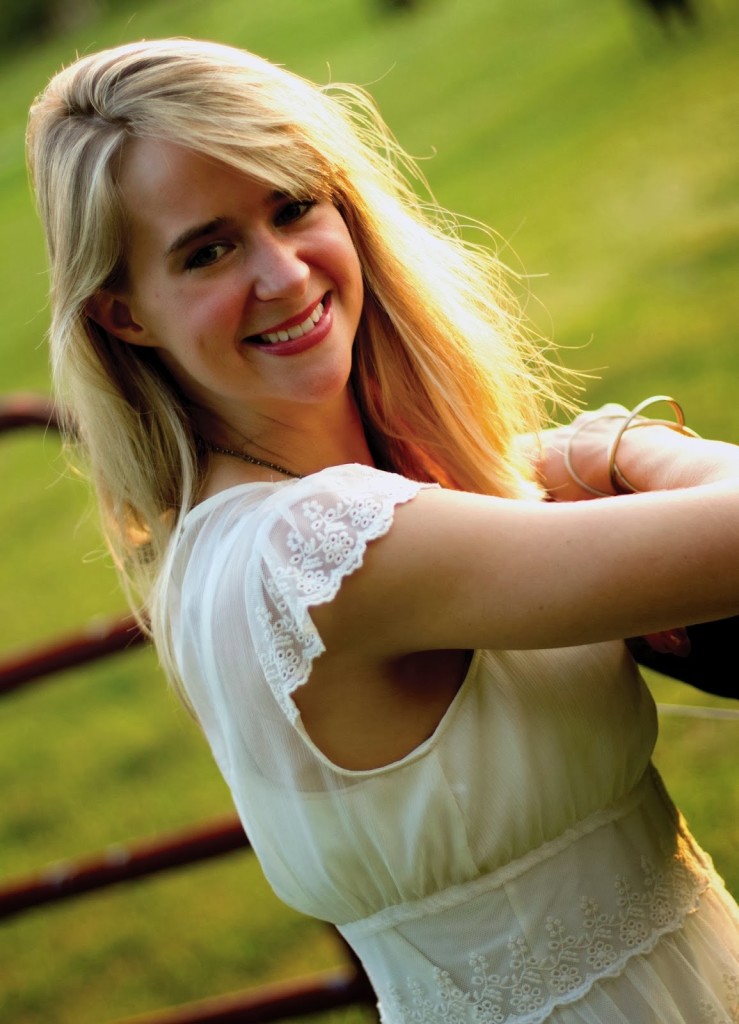 fun to write!
fun to write!
What was the most difficult part of writing this story for you?
The medical aspect did not come naturally, so I tried to research everything as much as I possibly could. My best friend is a cancer survivor, though, who received a bone marrow transplant at Vanderbilt in 2008. Walking beside her during that journey later made Eli’s fictional medical journey very real to me.
How has this story changed or impacted you?
The Outcast helped me heal from some past scars that I did not even know I had. It also helped me overcome the worry of “Can I pull this off?”
Now I know that I can pull it off; it’s really just a matter of discipline—of sitting down and working hard, even when I don’t want to. I love the Jack London quote: “You can’t wait for inspiration. You have to go after it with a club.” It’s been especially true since my daughter’s birth. Whenever her eyes fluttered closed (and she fought sleep until any child I have ever seen!), I would grab the baby monitor and run outside with my laptop. I would type as quickly as I could for as long as I could. The first draft of The Midwife was horrendous, but it was there. I could see the manuscript’s spine and then later paint on the sinew and skin until it became, in a way, a sentient being.
On your website you talk about your Plain heritage. What impact does this have on how you go about life in the ‘English’ world?
Our family tries to live a simple life, or as simply as possible considering we have electricity, Internet, and cars, along with all of the hassles these modern conveniences bring. We yearn to eventually live off the land and to raise our family with the core values—faith, loyalty to family, hard work—that have been passed down through the generations.
It was unusual and interesting to read the book from the two perspectives, Rachel and the deceased Amos. What led you to write the novel in this way?
My husband’s grandfather, Amos Stoltzfus, was kicked out of the Amish church when he was seventeen years old. He was one of the kindest men I’ve ever met, with these startling blue eyes, shock of white hair, and an outgoing personality that would’ve made me love him, even if he hadn’t become my adopted grandfather through marriage.
Grandpa Amos passed away a year before I began writing The Outcast. At his funeral, however, I had this picture of my flawed heroine, Rachel Stoltzfus, standing next to a graveyard with this new life in her arms. Grandpa Amos had demanded to be buried simply, just in a pine box his son had made, and with his large hands crossed over his unmoving chest.
All of these images just seemed to coalesce. I imagined Amos King watching Rachel’s sorrow from above, even as he was being lowered into his earthly grave, and knew that I had The Outcast’s opening scene and the second narrator for my novel.
I found the inclusion of alternative medicine quite fascinating. In your experience and research, is alternative medicine such as reflexology practiced in Plain communities?
There was a Mennonite man located near my mother’s Amish Country Store who could supposedly look in someone’s eyes and see a scar from a car accident that happened ten years ago. When my best friend was diagnosed with cancer, it was suggested that she should visit him. Everyone had good intentions, but a quandary soon arose: which type of medicine should my best friend choose? Holistic or conventional? Finally, my best friend decided to use both. She did chemotherapy and radiation (and later, a bone marrow transplant), but she also juiced fruits and vegetables and tried to keep her body alkaline. She never did go see the iridologist (the person who can read irises), but he always intrigued me. So when I came upon the same conventional-versus-holistic quandary when Eli is diagnosed with cancer in The Outcast, I decided to introduce the iridologist, Norman Troyer. Interesting fact: In her later years, my maternal grandmother was a reflexologist, but she was Brethren at the time, not Mennonite.
I would love to have visited Ida Mae’s shop. What do people in the Mennonite and Amish communities think of these shops and the tourists that visit them.
I know the Amish and Mennonites my mother works with are grateful for her business, Miller’s Amish Country Store. She helps sell their wares like soap, candles, jam, bread, cheese, honey, quilts, and outdoor lawn furniture and storage barns. Many Old Order Amish and Mennonites live in rural communities without much access to the larger towns and cities; therefore, it is helpful to have someone 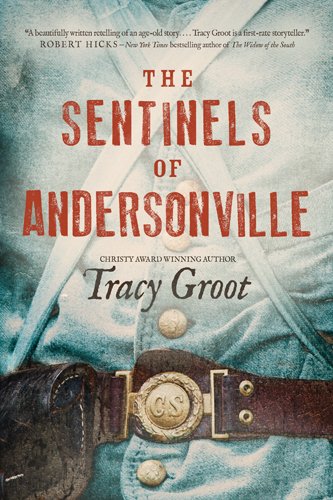 who can be the go-between!
who can be the go-between!
What kind of novels do you like to read? Do you have a favourite?
I mostly read literary fiction, but I enjoy a little sampling from every genre under the sun. I think it’s helpful to taste from a wide reading selection to develop our own writing flavor (it’s obviously getting close to suppertime!). My favorite novel at the moment is The Sentinels of Andersonville by Tracy Groot. Gritty writing from a Christian author. I love it!
I was shocked by the turn of events with the pre marital sex as well as adultery. Is this something that really does happen in their “world”?
Actually, yes. Sin is not excluded from Amish and Mennonite communities. Some Amish communities even support “bed sharing,” which encourages, during courtship, sharing a bed until you are ready to get married. This, of course, often leads to more than sleep.
How did you come up with the idea for this particular story?
Four years ago, a family member told a true story about the power of desire that was left unchecked and how it trickled down through an Old Order Mennonite family, not only affecting that generation, but the generations to come. We were all sitting around the kitchen, and after the person finished speaking, I gasped, “That’s a book!” But I did nothing about it. At the time, I was writing Southern fiction and did not want to surrender to “Amish fiction”—a genre my father always told me I should write.
However, a few years later, I was on the London Underground when a tall, stoop-shouldered man in a black suit stepped on board. My best friend and I recognized him as the person who was friends with the woman who was allowing us to stay in her flat. On the subway, this unsung poet and prophet spoke into my best friend’s life. Then later, on the double decker bus, he spoke into mine. He told me I would give up the manuscript I was currently working on and begin writing again. I didn’t know I would listen, but when I came home, I could not hear anything else. I put my current manuscript in a drawer and began writing a fictionalized version of the story that had been told to me. The unsung prophet of the London Underground is mentioned in the acknowledgements section of The Outcast.
I was surprised and pleased at the gradual revelation of poor choices and flaws in characters beside Rachel. Was it always your intention to reveal the flaws in the other characters and in particular, Leah’s deception? If yes, why did you do this?
I was also surprised! I knew that Rachel’s mother had manipulated the union between Leah and Tobias, but I had no idea that Leah had taken part in this manipulation as well. Sweet little Leah, of all people! But once I saw the guilt in Leah’s life, I struggled to understand it. (Oftentimes, these characters take on a life of their own!) Then I realized that she felt she was partly to blame for the sorrow that happened–that she was just Tobias’s “replacement” wife for the one he truly wanted. Plus, this made so much sense with their being identical twins, but yet so different in their personality makeup. I love the psychology regarding who we are and what makes us tick. It was very intriguing to watch the story come together.
Did you choose Rachel and Leah’s names from the biblical narrative about Jacob and his wives?
Yes, in a way. I enjoyed the biblical allusions and sense of competition, however subtle, that was immediately created by naming my main characters Rachel and Leah.
Initially, Rachel and Leah needed to be twins for the medical twist in the plot structure. However, the deeper I got into the story, the more I understood the significance of Rachel and Leah being twins and how they both reflected and countered each other’s strengths throughout their lives.
I have absolutely no experience of Mennonite communities, but I believe Amish or Mennonite novels are very popular in the US – why do you think readers are drawn to stories based on these communities?
I think the majority of us are moving through our days with four hundred search tabs open, trying to find the next best thing and therefore really feeling dissatisfied with everything. Because of this, the Gentle People’s simpler lifestyle is appealing. Now, that’s not to say that they do not have their share of hardships, because they certainly do. But there is something so beautiful about how they share 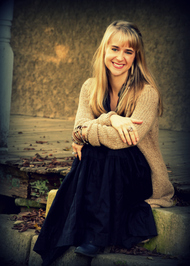 these hardships amongst their community and how they allow time for things that we are always too “rushed” for: hymn sings, prayer, horse and buggy rides, lengthy fellowship meals. These help balance the stress created by everyday life. Though my husband and I aren’t planning to get a buggy any time soon, we are trying to get back to a simpler lifestyle, like our grandparents lived.
these hardships amongst their community and how they allow time for things that we are always too “rushed” for: hymn sings, prayer, horse and buggy rides, lengthy fellowship meals. These help balance the stress created by everyday life. Though my husband and I aren’t planning to get a buggy any time soon, we are trying to get back to a simpler lifestyle, like our grandparents lived.
What do you love about the Mennonite community you grew up in?
My husband and I both have a Plain heritage that originated in Lancaster, Pennsylvania. My husband’s grandfather was raised Amish, but the rest of our family members have a Mennonite background. My family moved from Pennsylvania to Tennessee when I was three, but my childhood was filled with stories of my ancestors hiding TVs from bishops and concealing permed hair beneath kapps. Now my parents work one-on-one with the Amish and Mennonite communities in Tennessee and Kentucky, selling their wares through Miller’s Amish Country Store that’s located forty-five minutes north of Nashville.
However, I never personally lived in a Mennonite community. My family visited an Old Order Mennonite community about once a month for years. We became very close with the families there, and my parents, especially, remain in touch to this day. Also, my family lived in a Christian community from the time I was six until I was fourteen. My brothers and I had 365 acres of woods, meadows, caves, and creeks to explore. I used to joke that it was an acre a day.
This really fostered my love for nature, but sadly, the community was no Utopia. Irrevocable differences between the owner and the caretakers, my parents, forced us to leave when I was fourteen, and my family lost our home, which my father had built from his inheritance. I remember sitting on a fieldstone, hugging my knees to my chest, and weeping over the land we were about to leave behind. The sense of being an outcast at the cusp of my teenage years (for we were outcasts for years before we left) really altered my perception of community.
I was not expecting Rachel’s son to be diagnosed with a rare form of cancer, and the resulting need for a genetic match. What is your opinion regarding organ donation or intrusive operations on one party to benefit another, particularly child to child?
One of my closest friends in college was a heart recipient. It gave her six more years of life, during which she finished high school and college and got married. They were beautiful, fruitful years that would never have been possible without organ donation. After her death, I made the necessary legal changes to be an organ donor in case of my own death and plan to remain one for the rest of my life.
As far as intrusive operations are concerned, I believe there is a time when we have to let someone go, but I also believe we should use whatever medical care is available. My best friend wouldn’t be alive today if not for the bone marrow transplant she received from her then eight-year-old brother.
Healing seems to come with the revelation of dark secrets…yet lives do not then remain the same as before eg. Tobias. Do you know anyone who has lived this kind of story within your childhood group of Mennonite friends? If so, did it result in them leaving the community or the faith?
The Outcast is partly based on a true story, but I never knew the individuals personally. I have witnessed as Amish friends have left the church. Some are allowed to visit with their families who have remained behind, even if it goes against the community’s standards of belief. More often than not, though, those family ties are frayed by the choice to leave.
I loved Ida Mae’s character and her ‘adoption’ of Rachel and the way that positively impacted her own life…and continued her own healing. Was ‘Ida Mae’ based on someone you know personally?
My mother, but don’t tell her I said that! Seriously, though, my mother definitely doesn’t wear Wrangler jeans or chew tobacco, but she is a very giving, maternal, and feisty woman, just like Ida Mae. I love her dearly.
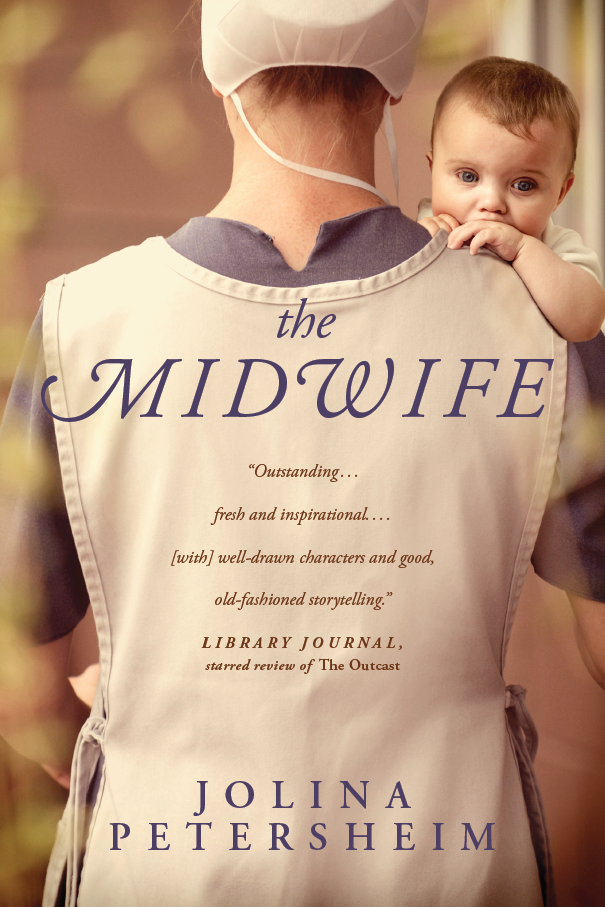 What else have you got in the works?
What else have you got in the works?
The Midwife, releasing through Tyndale House on June 1. Here is a synopsis:
Since the day Rhoda Mummau was baptized into the Old Order Mennonite Church and became the head midwife of Hopen Haus, she’s been torn between the needs of the unwed mothers under her care and her desire to conceal the secrets of her past. Contact with the outside world could provide medical advantages, but remaining secluded in the community gives her the anonymity she craves.
Graduate student Beth Winslow is on a path she never would have chosen. Heartbroken after surrendering a baby to adoption, she devotes herself to her studies until she becomes pregnant again, this time as a surrogate. But when early tests indicate possible abnormalities, Beth is unprepared for the parents’ decision to end the pregnancy—and for the fierce love she feels for this unborn child. Desperate, she flees the city and seeks refuge at Hopen House.
Past and present collide when a young woman named Amelia arrives to the sweeping countryside bearing secrets of her own. As Amelia’s due date draws near, Rhoda must face her past and those she thought she had left behind in order for the healing power of love and forgiveness to set them all free.
Please share a little of your faith journey
I was raised in church all of my life, but my relationship with Christ did not become real until I left for college and my faith was tested by some serious hardships that arose, including my brother’s substance abuse, my best friend’s cancer diagnosis, and my college friend’s death. I found that I had to surrender everyone and everything to God, and though—at the time—I had no idea what the outcome would be, I found peace in knowing He was in control.
How do you juggle writing with your young family?
I entered the publishing world shortly after my young daughter entered ours. Without knowing it, I trained my newborn to be an insomniac with a voracious appetite, because I believe she would shrivel up if she didn’t eat every two hours. This made it rather hard for a while. But she started sleeping through the night around ten months and really got it down at one year (hooray!).
Through that difficult period, my writing was my tether. Sometimes, after supper, I would sit on the front porch and write while my husband sat inside, rocking our brutzing child. I will admit that there were moments when I did not think I could do it, but that was when my husband, mother, or mother-in-law would come swooping in and make supper, fold laundry, or allow me to go to the library for a few hours to write.
Now that my daughter is two, it’s certainly gotten easier. My husband has his own business, and therefore can set his own hours; he often comes home early so I can have a few hours to write. Right now, I am upstairs writing in the guest room.
If you weren’t pursuing a writing career, what other career might you have chosen?
I would’ve been a professional clogger until my knees gave out. Or a television journalist. I thought, growing up, that I’d travel overseas and interview anyone who would let me pester them. Instead, I fell in love and moved to the country. I like my life just the way it is . . . .
Are you planning on writing further novels based on classic literature?
Not at this point, but that may change in the future.
What has been the most unexpected feedback you have received about The Outcast?
I was very honored (and a little intrigued) when the Association for Mormon Letters asked for a copy of The Outcast to review. They gave it one of the best, most well-written reviews to date. You may read it HERE.
Thanks, Jolina, for your wonderful responses ~ so appreciated!
Relz Reviewz Extras
Review of The Outcast
Visit Jolina’s website and blog
Buy The Outcast from Amazon or Koorong

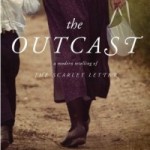
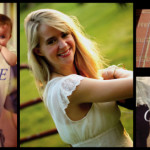
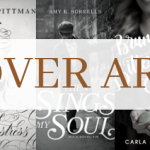
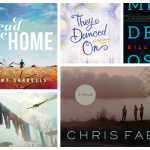
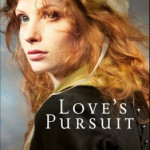
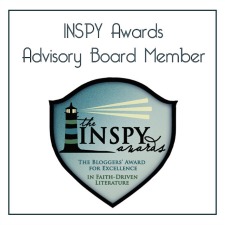




March 31, 2014 at 11:47 am
Well, can’t read the interview because of the spoilers but I just wanted to say that I’m interested in this book 🙂 I’ve great things about it.
March 31, 2014 at 11:52 am
Sorry, that would be : I’ve heard great things about it
April 2, 2014 at 9:42 pm
Ganise » Be sure to come back when you have read it, Ganise – I think you would really love the book 🙂
April 1, 2014 at 2:58 am
Thank you so much for allowing me to visit with you, Rel, and with your many readers. Truly an honor! 🙂
April 2, 2014 at 9:41 pm
Jolina Petersheim » A total pleasure, Jolina – thank YOU for taking the time to share with us in such a great way xo
April 1, 2014 at 8:12 am
What an awesome interview. I seriously loved The Outcast and can not wait for The Midwife.
April 2, 2014 at 9:40 pm
Juju at Tales of Whimsy… » Me, too, Juju ~ and I am not a fan of Amish fiction 😉